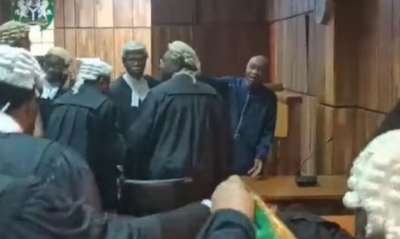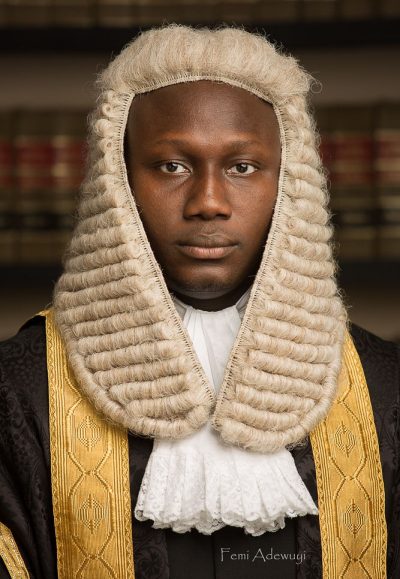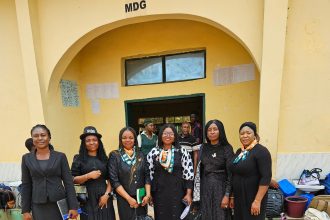ABUJA, NIGERIA – After nearly two decades, the protracted legal battle surrounding the deposition and attempted reinstatement of Al-Mustapha Haruna Jokolo, the 19th Emir of Gwandu, has finally reached its zenith at the Supreme Court.
The apex court’s recent judgment, delivered on June 4, 2025 (originally scheduled for June 6), has brought an end to a case that has captivated public attention and raised fundamental questions about justice, procedural adherence, and the rule of law in Nigeria.
The Genesis of the Dispute: A Royal Deposition in 2005 Al-Mustapha Haruna Jokolo, a former military officer and Aide-de-Camp to a Military Head of State, was controversially deposed as the 19th Emir of Gwandu in June 2005 by the then-Governor of Kebbi State, Adamu Aliero.
This removal was widely perceived as a consequence of political disagreements, notably a confrontation between Emir Jokolo and the then-President Olusegun Obasanjo over the perceived neglect of the northern zones. Critics at the time alleged a “flagrant disregard to the relevant sections of our constitution” in the manner of his deposition.

Initial Victories: High Court and Court of Appeal’s Reinstatement Orders Undeterred, Jokolo embarked on a lengthy legal quest for justice. His efforts saw initial success at the Kebbi State High Court, which, in 2014, ordered his reinstatement.
This judgment was subsequently upheld by the Court of Appeal in Sokoto in 2016. The appellate court notably averred that the deposition contravened Sections 6 and 7 of the Chiefs Appointment and Deposition Law of Kebbi State, asserting that the governor had neither conducted an inquiry into the allegations against the Emir nor consulted the State Council of Chiefs before reaching a decision.
Furthermore, it held that Jokolo was denied a fair hearing, a violation of Section 36 of the 1999 Constitution of the Federal Republic of Nigeria, thus deeming the deposition “null and void.”
The Supreme Court’s Decisive Ruling: A Jurisdictional “Blind Spot” Despite these victories, the Kebbi State Government and the incumbent Emir, Alhaji Muhammadu Ilyasu-Bashar, escalated the matter to the Supreme Court. Here, the case took a definitive turn based on a crucial point that, according to legal analysts, had been a “legal blind spot” in the lower court proceedings.
In a landmark judgment delivered by Justice Emmanuel Agim, the Supreme Court ruled that the Kebbi State High Court lacked the jurisdiction to entertain Jokolo’s suit.

The pivotal reason cited was his failure to exhaust the internal dispute resolution mechanisms mandated by Section 5(4) of the Kebbi State Chiefs (Appointment and Deposition) Law. This law explicitly stipulates that any aggrieved person must first submit a formal complaint to the Governor of Kebbi State before seeking judicial intervention.
Justice Agim declared, “This suit was filed prematurely, without first complying with the requirement to present a complaint to the governor. Consequently, the trial court lacked jurisdiction, and its judgment is a nullity.”
This jurisdictional issue, brought forth for the first time at the apex court by a Senior Advocate , Yakubu Chonoko Maikyau, the immediate past president of the Nigerian Bar Association, counsel for Kebbi State, proved decisive. The Supreme Court upheld the appeals of the Kebbi State Government and Alhaji Muhammadu Ilyasu-Bashar, setting aside the judgments of both the High Court and the Court of Appeal, thereby quashing Jokolo’s bid for reinstatement.
While Justice Ibrahim Mohammed Salami delivered a dissenting judgment, the majority decision stands, closing the final legal chapter on the Gwandu Emirate throne tussle.
The Subject’s Reaction and Lessons for the Legal System The Supreme Court’s decision, after nearly two decades, has evoked strong reactions. Al-Mustapha Haruna Jokolo’s frustration is palpable, with reports indicating his ire directed at the judiciary and certain members of the political elite, including Senior Advocates.
Commentators like Fatima Abba note his “polemical, fierce” language, contrasting with a more “unroyal” demeanor, which she attributes to his military background. His sentiment that the victory “dissipated at the crucial moment” overlooks the fundamental jurisdictional omission.
This protracted case serves as a poignant reminder of several critical aspects of the Nigerian judicial system:
- Importance of Exhausting Administrative Remedies: The Supreme Court’s ruling underscores the imperative for litigants to meticulously follow all stipulated procedural conditions, particularly exhausting administrative dispute resolution mechanisms, before approaching the courts. Failure to do so can prove fatal to a case, regardless of its perceived merits.
- The Weight of Jurisdictional Issues: Jurisdiction is fundamental. As this case demonstrates, a foundational flaw in jurisdiction can nullify years of legal proceedings, irrespective of favorable outcomes in lower courts. Legal practitioners are continually reminded to identify and address such issues early in the litigation process.
- “Justice Delayed is Justice Denied”: The 19-year duration of this legal battle highlights concerns about the pace of justice in Nigeria. For many, such prolonged processes can erode faith in the system, suggesting that justice’s functionality can, at times, be influenced by “absurd factors mostly designed to suit tenured conveniences.”
- Public Trust in the Judiciary: The case, and the reactions to it, bring to the fore the continuous need for the judiciary to maintain public trust through transparency, impartiality, and consistent application of the law.
The Supreme Court’s decision on the Gwandu Emirate throne marks the end of a long and complex legal journey. It reinforces the principle that procedural compliance is paramount and serves as a significant case study for legal practitioners and the general public on the intricacies of the Nigerian legal framework.
Read More:
- Federal High Court to End Manual Filing in Lagos Division by June 20, Launches E-Filing Platform
-
Judge Dismisses N620m Fraud Case Involving Abuja Baptist Church Leaders










